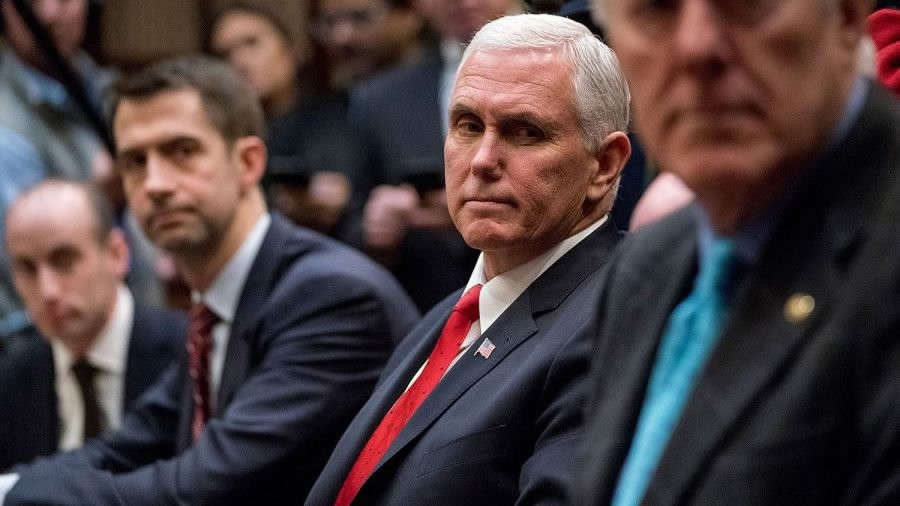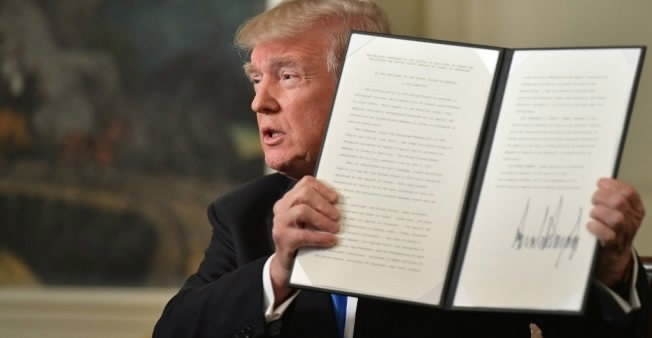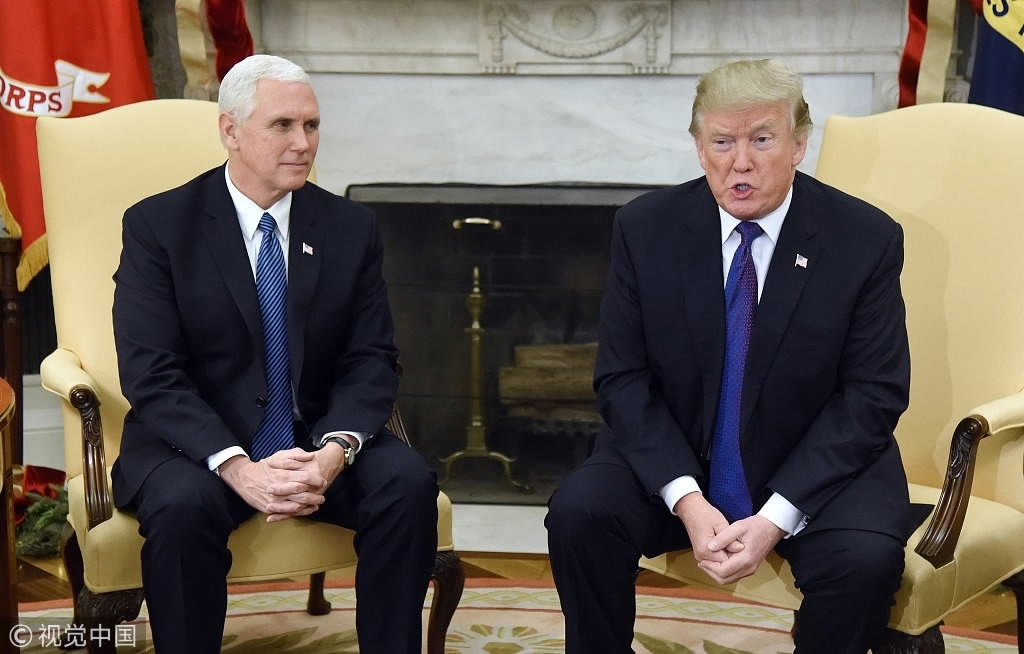
Opinions
19:12, 10-Jan-2018
Opinion: Pence's Middle East visit shows US commitment to peace
Guest commentary by Wang Jin

US Vice President Mike Pence will leave next week on a high-stakes trip to Egypt, Jordan and Israel. Pence will arrive in Cairo on January 20 for a meeting with President Abdel Fattah al-Sisi, heading the following day to Amman for a one-on-one with Jordan's King Abdullah II. Pence’s trip will conclude on January 22-23 with a two-day visit to Israel, where he will meet Prime Minister Benjamin Netanyahu and President Reuven Rivlin, deliver a speech to the Knesset, visit the Western Wall and the Yad Vashem Holocaust memorial.
Initially set for late December, Pence’s trip was pushed back as the Middle East reeled from deadly protests triggered by President Donald Trump’s controversial decision to declare Jerusalem as Israel’s capital – in a break with decades of US policy. Last December, Palestinian President Mahmoud Abbas voiced his opposition to hosting any US political leaders in the West Bank, including Pence, to show his anger against Trump’s Jerusalem decision. Given the level of anger and criticism directed towards the US from nearly all Muslim states following Trump’s Jerusalem announcement, Pence’s visit may be an uncomfortable one.

US President Donald Trump holds up a signed memorandum after he delivered a statement on Jerusalem from the Diplomatic Reception Room of the White House, Dec. 6, 2017. /AFP Photo
US President Donald Trump holds up a signed memorandum after he delivered a statement on Jerusalem from the Diplomatic Reception Room of the White House, Dec. 6, 2017. /AFP Photo
Despite the global uproar stemming from Trump's decision, the US will maintain its key role in the Israel-Palestine peace process. On the one hand, the US is the only reliable mediator in the negotiations, given its close relationship with Israel, the dominating influence of Jewish lobbying groups within the US, and the important role the US plays in providing financial assistance to the Palestine Authority, which is led by President Mahmoud Abbas in Ramallah.
However, the US plan, especially during the Trump administration, for Israel-Palestine peace talks is very different from the Obama administration or any of his predecessors. Trump and his team hope to establish the peace talks upon a new precondition that Palestinians should respect the “reality,” meaning that Palestinian leaders should give up their claim over Jerusalem and some parts of West Bank.

A Palestinian protester takes cover during clashes with Israeli troops at a protest against US President Donald Trump's decision to recognize Jerusalem as the capital of Israel near the West Bank city of Ramallah on December 7, 2017. /Reuters Photo
A Palestinian protester takes cover during clashes with Israeli troops at a protest against US President Donald Trump's decision to recognize Jerusalem as the capital of Israel near the West Bank city of Ramallah on December 7, 2017. /Reuters Photo
Given Palestinian's anger following the Jerusalem decision, it is impossible for any Palestinian leader either to meet or host a visiting US politician in public, or meet the precondition for peace talks with Israel set up by the US. However, this does not mean that the US-Palestine communication bridge will be totally blocked. Both US and Palestinian leaders are able to communicate either via backchannels or through the help of other regional states, including Egypt and Jordan.
During his trip, Pence can make an impact. On the one hand, Pence may show the US' steadfast support for Israel, while on the other hand, Pence may be able to persuade Israelis to downplay their ambition in the West Bank and encourage Israel to join the peace talks with Palestine. After Trump’s controversial decision, most Israeli politicians hope that Israel will further “legitimize” their existence in the West Bank, or part of the West Bank. This will undoubtedly increase the tension between Israel and Palestine. Pence will attempt to appease both sides, but his words will be scrutinized while in the Middle East.

US President Donald Trump speaks as Vice President Mike Pence looks on during a meeting with Congressional leadership in the Oval Office of the White House on December 7, 2017 in Washington, DC. /VCG Photo
US President Donald Trump speaks as Vice President Mike Pence looks on during a meeting with Congressional leadership in the Oval Office of the White House on December 7, 2017 in Washington, DC. /VCG Photo
Counterterrorism will be another important issue during Pence’s visit. Egypt needs help from US intelligence to crush Wilayat Sinai – a branch of ISIL located in Egypt's Sinai Peninsula. Jordan needs US assistance to monitor the Islamic extremist groups inside its borders, and Israel needs US help to persuade Arab states, such as Qatar and Saudi Arabia, to stop their financial assistance to Palestinian “extremists,” “terrorists” and their families. Therefore, although Pence is not welcome because of Trump’s decision over Jerusalem, there are still many topics for the vice president and his Egyptian, Jordanian and Israeli counterparts.
Trump’s controversial decision sparked protests and anger in Arab and Muslim countries, and US Vice President Mike Pence will surely face huge pressure and criticism from Arab media and politicians during his visit. However, Pence’s upcoming visit shows the US' continued support for the Israel-Palestine peace process and desire to cooperate with regional states to counter terrorism, both of which will surely grab the attention of Middle Eastern states.
(Wang Jin is a PhD candidate at the School of Political Science of University Haifa and a research fellow at Syria Research Center of Northwest University. The article reflects the author's opinion, and not necessarily the view of CGTN.)

SITEMAP
Copyright © 2018 CGTN. Beijing ICP prepared NO.16065310-3
Copyright © 2018 CGTN. Beijing ICP prepared NO.16065310-3